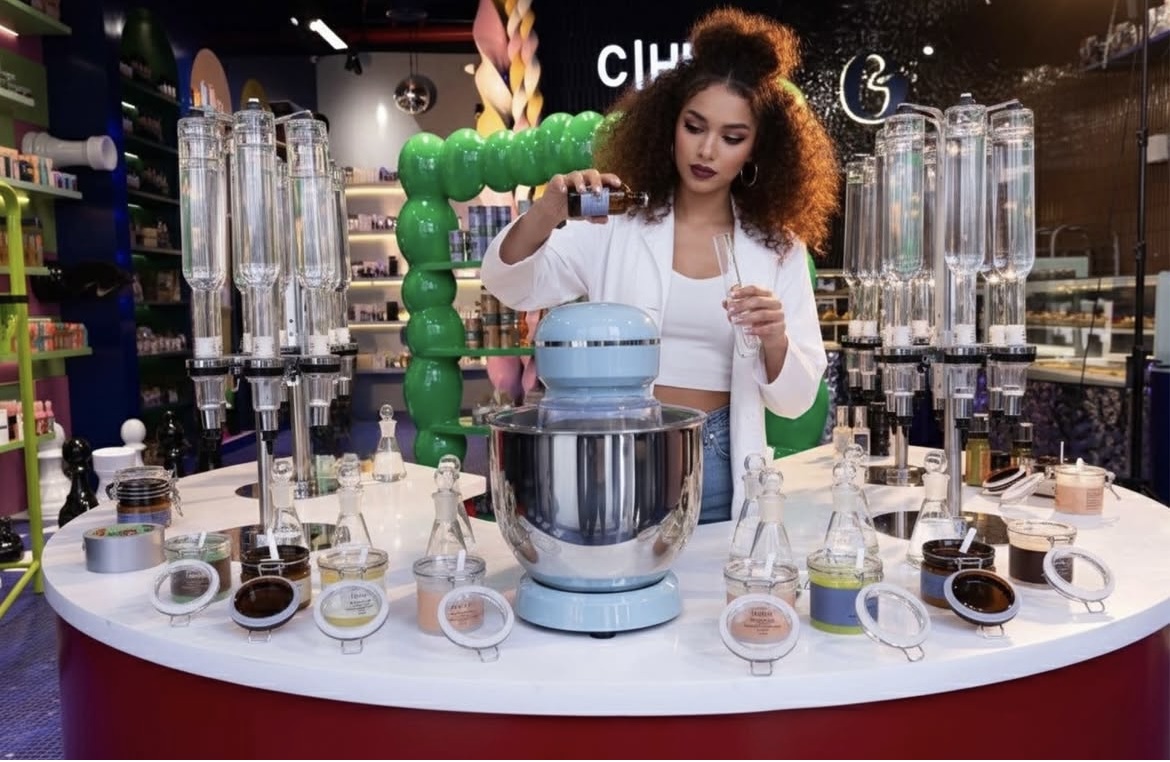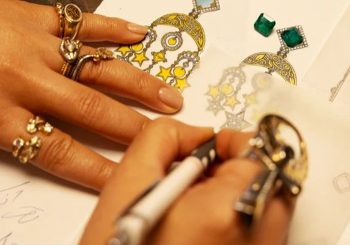Egypt’s cafés are no longer only for drinking coffee, and retail stores are no longer just for shopping. Across Cairo, a new wave of hybrid spaces is blending leisure, design, and self-care in a way that reflects changing consumer habits and a growing appetite for creative, community-oriented experiences.
These spaces, often called hybrid lifestyle environments, are part of a global movement that prioritizes experience over transaction. A 2022 Retail Futures report by The Future Laboratory, a consultancy, identified a rise in “hyperphysical stores,” which are physical spaces designed to engage the senses and foster real-world connection. Such environments often combine elements of cafés, wellness studios, and art galleries, creating spaces where people interact rather than simply purchase.
Maison 69, a gallery-like boutique in Zamalek and New Cairo, was among the first to introduce this idea to Egypt when it opened in 2018. The concept boutique blends Egyptian craftsmanship with international brands, bringing together art, fashion, and design in a space styled as a modern home.
Beyond retail, it features a café and bookstore that make it a place to gather as much as to shop. By curating design workshops and small events, Maison 69 created a space where culture, creativity, and community naturally intersect.
Spaces such as C-Hub in New Cairo have taken this concept in more experimental directions. The venue opened in September and has attracted attention for its colorful interiors, playful design, and sensory experiences. Inside, visitors can explore Egyptian wellness brands, enjoy the bakery café, or mix their own scents, body butter, or moisturizers in the lab inside the store. The experience is hands-on and fun, encouraging visitors to experiment freely and create a unique product specifically for them.
Another space redefining what cafés can be is Tchaï, an artisanal tea house tucked inside Tamara Haus in Downtown Cairo. Created by designers Karim and Hourig Mekhtigian, it combines tea, design, and storytelling in one place. The space feels part café, part gallery, where art objects, sculptural pieces, and handmade chocolates sit side by side.
Visitors can try tea infused with rose or cinnamon, surrounded by design elements that reflect Cairo’s layered identity. Tchaï is part of a wider movement turning everyday rituals into shared, sensory experiences.
According to a 2025 trend report by Mintel, a global market intelligence and research agency, experience-driven retail is reshaping how people interact with brands. Rather than focusing solely on efficiency or visual appeal, businesses are encouraging visitors to test, personalize, and participate. This approach is less about luxury and more about making everyday experiences engaging and memorable.
In Egypt, the appeal of these hybrid spaces lies in how they balance individuality and community. They allow visitors to express personal taste through a customized scent, a design event, or a quiet cup of tea, while creating shared spaces for connection.
This mirrors a wider global movement, as around the world, places like Gentle Monster’s Haus Dosan in Seoul and Paris’s Merci Concept Store are blending art, retail, and leisure into immersive experiences.
In Cairo, this shift is just beginning. As concept stores, wellness cafés, and design-led venues multiply, they signal a new way of experiencing the city, one that values presence, creativity, and connection over consumption.







Comments (0)